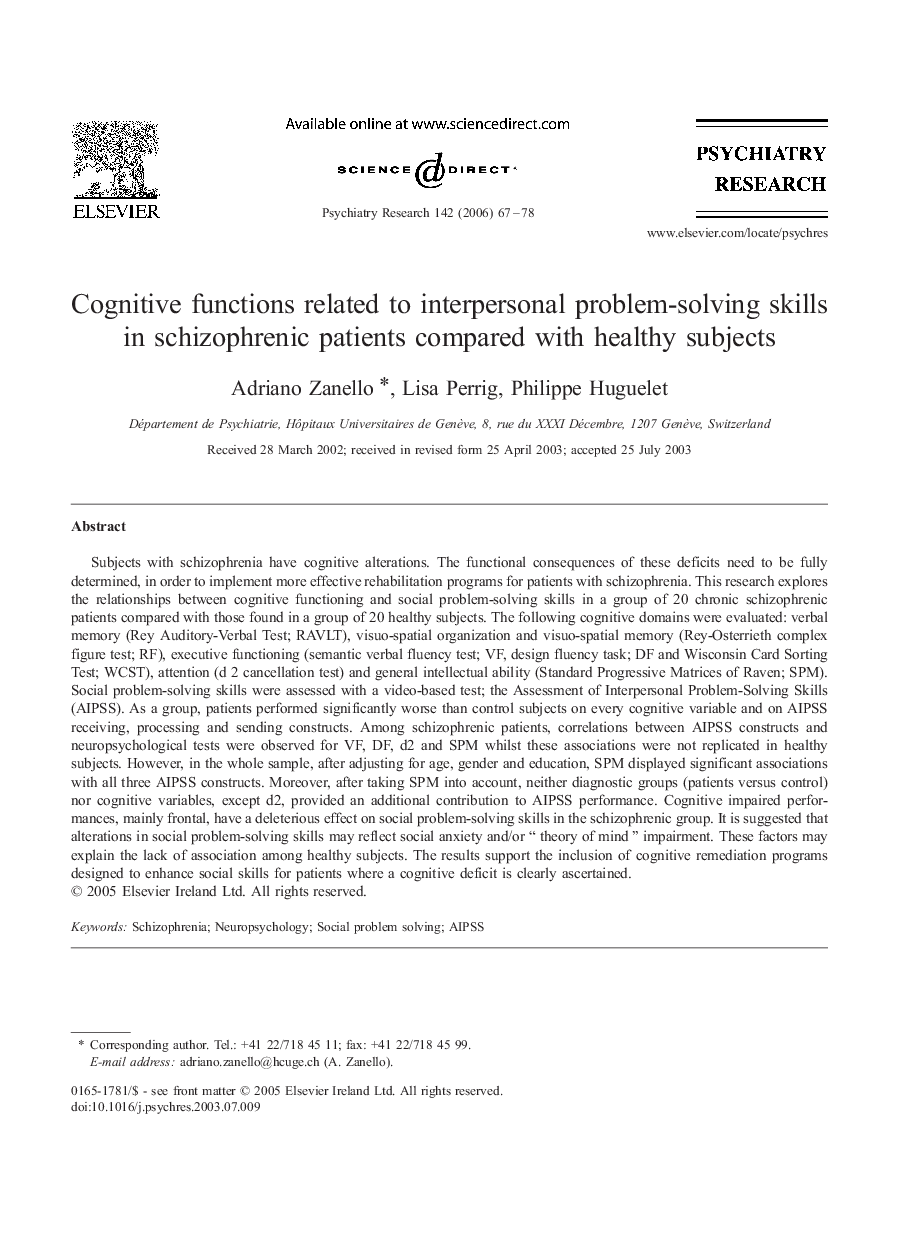| Article ID | Journal | Published Year | Pages | File Type |
|---|---|---|---|---|
| 10305113 | Psychiatry Research | 2006 | 12 Pages |
Abstract
Subjects with schizophrenia have cognitive alterations. The functional consequences of these deficits need to be fully determined, in order to implement more effective rehabilitation programs for patients with schizophrenia. This research explores the relationships between cognitive functioning and social problem-solving skills in a group of 20 chronic schizophrenic patients compared with those found in a group of 20 healthy subjects. The following cognitive domains were evaluated: verbal memory (Rey Auditory-Verbal Test; RAVLT), visuo-spatial organization and visuo-spatial memory (Rey-Osterrieth complex figure test; RF), executive functioning (semantic verbal fluency test; VF, design fluency task; DF and Wisconsin Card Sorting Test; WCST), attention (d 2 cancellation test) and general intellectual ability (Standard Progressive Matrices of Raven; SPM). Social problem-solving skills were assessed with a video-based test; the Assessment of Interpersonal Problem-Solving Skills (AIPSS). As a group, patients performed significantly worse than control subjects on every cognitive variable and on AIPSS receiving, processing and sending constructs. Among schizophrenic patients, correlations between AIPSS constructs and neuropsychological tests were observed for VF, DF, d2 and SPM whilst these associations were not replicated in healthy subjects. However, in the whole sample, after adjusting for age, gender and education, SPM displayed significant associations with all three AIPSS constructs. Moreover, after taking SPM into account, neither diagnostic groups (patients versus control) nor cognitive variables, except d2, provided an additional contribution to AIPSS performance. Cognitive impaired performances, mainly frontal, have a deleterious effect on social problem-solving skills in the schizophrenic group. It is suggested that alterations in social problem-solving skills may reflect social anxiety and/or “ theory of mind ” impairment. These factors may explain the lack of association among healthy subjects. The results support the inclusion of cognitive remediation programs designed to enhance social skills for patients where a cognitive deficit is clearly ascertained.
Related Topics
Life Sciences
Neuroscience
Biological Psychiatry
Authors
Adriano Zanello, Lisa Perrig, Philippe Huguelet,
